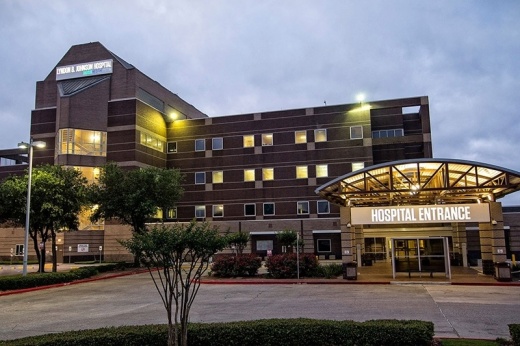The proposal is needed to keep up with demand for health care services in Harris County as population grows, a process that would entail building a new Lyndon B. Johnson Hospital, among other plans, if the bond passes.
The overview: Harris Health owns and operates the LBJ Hospital in northeast Houston as well as the Ben Taub Hospital in the Texas Medical Center. It also operates 17 community-based clinics, a free-standing dental center, a chronic dialysis center and three outpatient specialty clinics. Although the system is mandated by law to provide health care services to the uninsured and underinsured, Dr. Esmaeil Porsa, president and CEO of Harris Health System, said services are provided to the entire Harris County community, including at a Level I trauma center at Ben Taub and a Level III trauma center at LBJ.
The proposal: The $2.5 billion in the bond proposal includes:
- $1.6 billion toward the creation of the new LBJ Hospital
- $400 million to make improvements at the existing LBJ Hospital
- $500 million toward improvements at existing community clinics and the opening of three new community clinics in underserved parts of the county
- $400 million to make improvements at Ben Taub
The big picture: Planning for a new LBJ Hospital has been underway for 1 1/2 years, Porsa said. The new LBJ would open with 390 beds and with enough shell space to expand to 450 beds in the future as needed. Plans also include earning a Level I trauma center designation at the new LBJ, which would make it the only Level I trauma center in Houston outside of the Texas Medical Center, Porsa said, bolstering heart and stroke capabilities and featuring a helipad.
The need: Harris Health's existing hospitals do not have any capacity to expand, Porsa said, making for the new LBJ Hospital critical as demand for health care services continues to rise. The system has been "chronically underfunded," Porsa said, and the two hospitals are both nearing their end of useful life if improvements are not made. Infrastructure issues, including sewer and plumbing, have forced officials to temporarily close parts of the hospitals in the past, and those issues are ongoing, he said. At the LBJ Hospital, it is not unusual for anywhere between 30-60 people to be waiting in the emergency room because of a lack of beds.
The details: If passed, work on the new LBJ Hospital would begin first, located adjacent to the existing one. It would open in 2028. After that, work would begin on refurbishing the existing LBJ Hospital to provide other services, such as inpatient psychiatric care. Some time during this period of time, HHS would invest the $500 million in community clinic, including opening clinics in east Harris County, northwest Harris County and southwest Harris County, all areas HHS has determined to be high-needs areas—where health care services are not present at the level needed, including HHS services as well as services provided by other community clinics and federally qualified health centers.
Quote of note: "The population is going to grow," Porsa said. "Harris County is home to the largest number and highest rate of uninsured in the country. That trend is going to continue. The need for our services is only going to grow. Do we address that in a timely, thoughtful fashion, or do we wait for the bottom to fall out?"
Dig deeper: The Harris Health System is also an economic engine in the county, Porsa said, noting that the system trains more than 2,500 future physicians every year. Porsa estimated that half the doctors practicing in Houston have done training at HHS.
The takeaway: If approved, the tax rate for the Harris Health System would increase by an estimated 2 cents over the course of the bond. Over that time, the owner of a $300,000 house in Harris County would see their property taxes increase by less than $6 per month, Porsa said, adding that the HHS tax rate is lower than similar entities in Dallas, El Paso and San Antonio.
Next steps: Porsa will present the proposed bond to Harris County commissioners at a June 6 meeting. By law, commissioners are not able to vote to place the item on November ballots until August. If commissioners approve the item, Harris County voters will get a chance to either support or reject the referendum during November elections.





